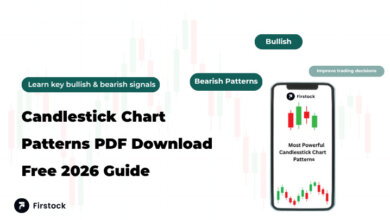
In a world where every click, swipe, and transaction is generating data, mastering data science has become more than just a benefit; it’s a requirement. A report by Market.us, from 2025, found that 65% of the world’s companies employ data science when making everyday decisions, and 90% of companies employ data science for their overall strategic direction. Whether you are a professional ready to shift into analytics or someone seeking to gain an analytical edge, an appropriate certification will help you to accelerate your career and future-ready capabilities. So, how do you determine which is for you? Let’s look at some of the most credible data science certifications that can help advance your career.
1. Certified Lead Data Scientist (CLDS™): USDSI®
This internationally recognized and vendor-neutral certification is designed for individuals who have a few years of experience in a data or analytical role and are ready to move to leadership. The certification includes technical concepts, as well as applied machine learning, natural language processing, deep learning, data storytelling, and model ops.
- Duration: 4–25 weeks (self-paced)
- Why choose it: Great for professionals who aspire to lead others in data science teams and influence strategic decisions. It blends business knowledge and technical knowledge equally.
2. Professional Certificate in Data Science: Harvard Extension School
This is a solid program that provides a great introduction to statistics, data visualization, R programming, machine learning, and data wrangling. There are practical projects along the way, and ultimately a final capstone to assess real-world skills.
- Duration: Approximately 12 months part-time
- Why choose it: Ideal for professionals who wish to expand their knowledge of statistical modelling and analytics but have a basic understanding of programming.
3. Certification of Professional Achievement in Data Sciences: Columbia University
The certificate program at Columbia is a rigorous course that aims to develop real analytical and programming skills. It consists of four primary areas of focus: Algorithms, Probability and Statistics, Machine learning, and Exploratory Data Analysis.
- Duration: About 12 months
- Why choose it: It is academically rigorous and is a great opportunity for individuals interested in careers in advanced analytics, research, or technical data positions.
4. Applied AI & Data Science Certificate: Brown University School of Professional Studies
Brown University has a certificate program that will challenge you as it emphasizes both fundamental and advanced AI/data science skills. The curriculum includes exploratory data analysis, machine learning, deep learning, generative AI, and projects based on real-world case studies with Python-based labs.
Duration: 12 weeks, with optional monthly live masterclasses
Why choose it: Perfect for early-to-mid-career workers looking for applied, hands-on technical training in ML and AI.
5. Professional Certificate in Data Science for Business: University of Chicago
The University of Chicago has a robust program in data science designed for business professionals, which covers statistics, Python-based AI/ML, data engineering, and storytelling to give learners the ability to derive business insights from unstructured data.
Duration: Around 10 months
Why choose it: Ideal for people who want to combine technical analytics with strategic decision-making without committing to a full-time graduate program in engineering or computer science.
6. Certificate in Data Science: Yale University
Yale University offers a sequential certificate with emphasis on statistical reasoning, machine learning, applied analytics that is intended for learners who are not specifically majoring in computer science but require substantial proficiency in data management and analytical skills.
- Duration: Usually 2-3 semesters.
- Why: Particularly helpful for professionals from business, social sciences, or policy-driven perspectives who need data fluency but are not required to do an invasive coding exercise.
Considerations for Choosing the Right Data Science Certification
- Evaluate your level: Beginners should start from the foundational courses, while more experienced individuals should consider advanced or specialized paths.
- Establish your career goals: Choose the certification program that aligns with the position you are targeting, data analyst, machine learning engineer, or business intelligence specialist.
- Choose the appropriate learning format: Decide if you’re more suited to self-directed programs versus a more structured cohort-based learning, depending on your availability and self-discipline.
- Evaluate academic versus industry credentials: University programs will hold more real-life prestige, but industry issued credentials can offer potential employees more relevant and job-ready skills.
- Scrutinize syllabus: Make sure the program has real-world projects, relevant tools like Python, SQL, ML, and allows for some potential portfolio building.
- See their reviews and outcomes: Research some of their success stories, or if you can, go to LinkedIn and look at success stories for real-world impact.
- Consider budgeting and return on investment: Choose a program that fits your budget but provides career value down the line.
Conclusion
In today’s information-saturated world, the most important point of difference for professionals is the ability to turn facts into impact. The right certification is more than a stamp of approval; it’s a marker of your ability, credibility, and intent to stay on top. Find a certification that will not only teach you how to use tools but will also change your mindset with data.


